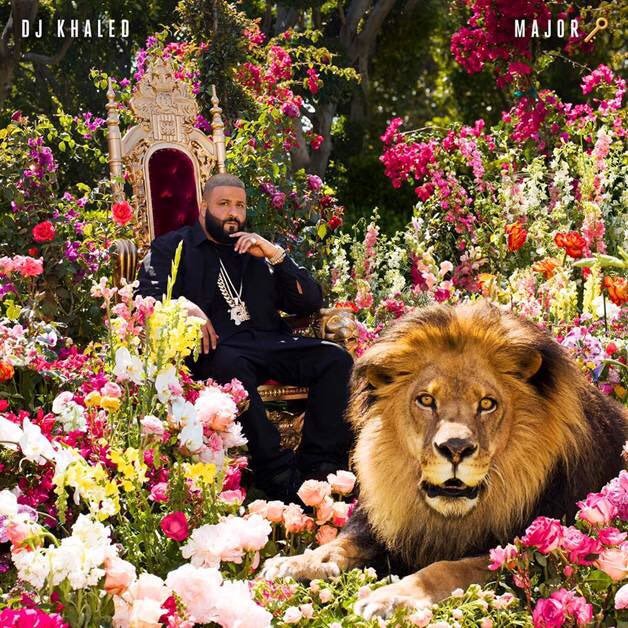Y’know, for someone so bombastic in his public persona, DJ Khaled shows a remarkable amount of restraint in the curation of this new album of his. While Khaled himself produced only four of the fourteen tracks on Major Key, he is the person that made it happen, using his large reputation to bring together a variety of talents. The lyrics, presented courtesy of a veritable who’s-who of modern hip hop (some of the higher profile artists being Jay-Z, Drake, Nicki Minaj, Future, Kendrick Lamar and Nas) reflect the sincerity of Khaled’s philosophy of carpe diem capitalistic self-betterment – whether it be in the field of business ventures, romance, or in general taking hold of one’s own life and achieving one’s dream.
Khaled, if you didn’t already know, is a professional hype man, producer, chain-restaurant owner, environmentalist, healthy living activist, motivational speaker, moral philosopher (yes, I’m serious), snapchat wizard and all-round nice guy. It’s telling then that each of the fourteen tracks presented here reflect this persona – and not just in the sense that he makes an occasional appearance to shout a hype-phrase at you. Khaled is a looming presence throughout this album of respectable men and women telling you all about how successful they are.
Despite what sounds like glowing praise for the project – and to some degree I am giving glowing praise to DJ Khaled, he is a commendable human being – it appears as if the album blows most of its steam early, delivering a passionate mission statement before middling out into generic trap rap. It’s a shame – the first six or so tracks are pretty damn good, delivering topical and inventive lyricism on top of almost minimalist production (save the track “Holy Key”, which you can definitely tell has been tailored to Kendrick in terms of production, and as a result stands head and shoulders above the rest). Then quite suddenly things change, and the album dilutes from what might have been, relying too heavily on the clichés of both present and past.
The six-song stretch from “I Got the Keys” to “Imma Be Right” could be considered some of the best hip hop delivered in the past two or so years – it is fun, airy and delivers legitimate emotional depth. I do have an issue with the Drake feature on here “For Free”, which boasts of his sexual prowess in a particularly slimy way, twisting a Kendrick Lamar metaphor to his own reprehensible gain. The beat is nice, but not nearly enough to excuse the subject matter.
The other eight or so tracks here are generic mix of genres. Be it the R&B flavour of the songs “Do You Mind” or “Pick These Hoes Apart”, or the lopsided half boom-bap of “Don’t Ever Play Yourself”, what is presented to you is nothing that you can’t already find on mainstream radio. I have nothing against trap music; it is a technique capable of making competent beats. It’s not a very diverse technique though, and utilising it to the effect present in these songs can wear out your patience.
The last track “Progress” throws a curveball by being something of an early 2000s club banger. It’s certainly a bit ridiculous to throw something like this at you, just as the album is just wrapping up. For what it is, the track carries the spirit of the music it hails back to, with corny upbeat piano echoing cheesy synths. However, it doesn’t even come close to being as energetic or uplifting as any of the songs that have hung around in club playlists forever. Literally nobody asked for this track – literally nobody. Yet here it is.
Listening to this album next to my pet lion, and lathered head-to-toe in cocoa butter, I kept asking myself: what is there to get from this that I can’t find anywhere else in hip hop or club music? The answer to this is: not a whole lot. It speaks to the nature and history of popular music – as a series of fads or techniques in a constant cycle of reiteration and stagnation. This album is the convergence of several of these cycles, none of them new. Major Key is certainly a product of its time – in perishable packaging. Try another one, DJK. But different to this.
*Jetski noises*
Review by Eamonn Kelly

